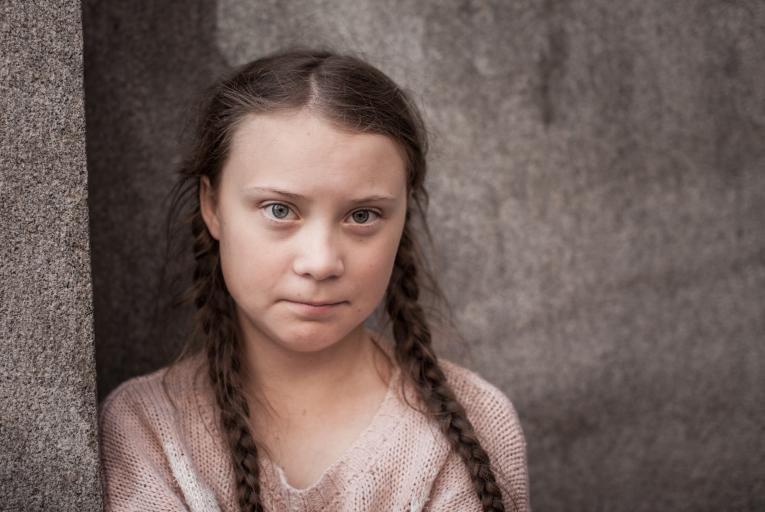
Teenagers all over the world have a lot of expectations to live up to. They find themselves striving to balance school, family, work, and social obligations while preparing for their future lives as adults. That alone can feel like a monumental task—now imagine adding heading up a global protest movement, sparring with national leaders, and challenging international corporations to that list, all the while realizing that your future life as an adult will be severely impacted by the inaction of previous generations. It’s enough to make any teen yearn for a simpler, easier life—but not Greta Thunberg.
Born in 2003 in Stockholm, Sweden, Thunberg first heard about climate change when she was eight years old and could not understand why so little action was being taken to combat it. This knowledge caused her to struggle with depression for several years before beginning the school strikes that catapulted her to international renown. She was diagnosed with Asperger’s Syndrome in 2015, which she described as formerly limiting, but now as her “superpower.” That superpower helped her launch a series of protests and public speeches outside the Swedish Parliament beginning in 2018, demanding the government take action to curb carbon emissions.
Images of her first protest spread rapidly across social media, gaining traction and leading to Thunberg taking part in demonstrations across Europe and inspiring student strikes around the world. Taking a sabbatical year in late 2019, she sailed across the Atlantic Ocean to New York City to speak before the U.S. Senate and attend the UN Climate Action Summit. The 2020 pandemic brought her protests online, continuing her activism in the face of global quarantines and lockdowns. While she returned to school in August 2020, her activism has not slowed down.
Thunberg’s willingness to speak bluntly about the impacts of climate change upon future generations has drawn both admiration and ire from people across the globe. Unwilling to back down in the face of criticism and outright harassment, she has engaged with world leaders, politicians, news media, and everyday people to drive her message home. The recipient of numerous awards and a twice-over Nobel Peace Prize nominee, she considers the importance of the awards to pale in comparison to the need for decisive action.
Her 2019 speech to the UN said it best: "Right here, right now is where we draw the line. The world is waking up. And change is coming whether you like it or not."
